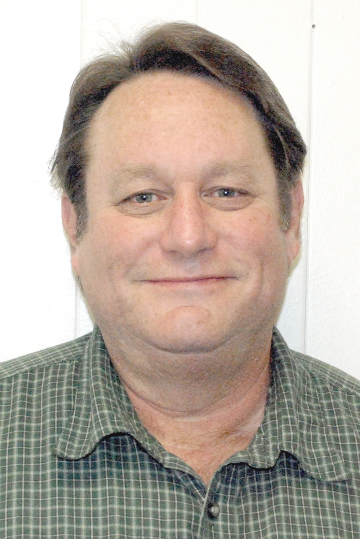 During the past year, Citizen columnist Bill Graham has penned numerous columns in recognition of the 150 year anniversary of the Civil War in Platte County. Following is another piece in the series.
During the past year, Citizen columnist Bill Graham has penned numerous columns in recognition of the 150 year anniversary of the Civil War in Platte County. Following is another piece in the series.
A harsh winter just past, the redbud and wild plum trees are blooming on schedule in gorgeous lavender and white. Shrubbery is beginning to green up and trees are close to leafing out. We’re grateful. A century and a half ago, some felt the same while others felt dread. Greenup brought forage for horses and better hiding places in the rough country for guerillas and ruffians moving about the countryside. War and revenge was always in the air. Platte County, torn and forlorn, enjoyed a more peaceable winter than the other war years, albeit still filled with uncertainty and violence. A “pawpaw militia” of local men, Union in name, had helped patrol the countryside. Raiders from Kansas were deterred a bit. But spring makes violent men restless. In February, G.S. Park of Parkville had a lawsuit filed in Circuit Court against Platte County men for damages for throwing his newspaper printing press in the river. Lucretia Gordon who lived west of Platte City had died. She was the mother of Si Gordon, the most feared southern Bushwhacker from Platte County. He had been driven from the county by Union sentiment from Fort Leavenworth, or would her death bring his return for a time? A newspaper favoring the Union, The Border Times, began circulating in the county. Editor A.G. Beller displayed courage, independence and marked ability, historian W.M. Paxton wrote in his “Annals of Platte County.” Paxton never revealed clearly in print his leanings in the war, perhaps due to wise self preservation or maybe he just didn’t want a side when both were violent. But his entry for that month helped some believe he favored the Union and opposed slavery. Beller, he wrote, opposed slavery and believed African Americans should have equal rights under the law. “He depreciated extreme measures and condemned inhumanity.” A military order was issued requiring anyone participating in ecclesiastical convention to take an oath of loyalty to the Union. Many ministers declared they could not take such an oath, Paxton wrote. Thus the war was being fought in the pulpit as well as with guns. The robbery of a store prompted some farmers in the New Market area to be assessed for damages, as they were considered disloyal. By late March, Paxton wrote, “It is becoming daily more evident that emissaries from the South are recruiting in Platte County, and that the Pawpaws are disloyal. Small bands of bushwhackers manifest themselves in one place today and another tomorrow.” But operating in the county they were recognized and reported to Union forces, so they headed south to join the Confederate Army or other bushwhackers rather than face prison or death. “Thornton was the active spirit in tempting the youth of our county.” In April, editor Beller was elected mayor of Weston, showing that town’s Union lean. Platte County was seeking bids to rebuild the Courthouse and jail, since they had been burned to the ground earlier in the war. Slaves were being recruited to fight in the Union Army. Prominent brothers Samuel and John Winston, the latter recruiting for Price’s southern army, were arrested and spent the remainder of the war in prison camps. Bushwhackers attempted a raid on Parkville but were turned away. “Leavenworth wagons still cross (the Missouri River) and take back (steal) wood,” Paxton wrote, “but Si Gordon appears and takes from John Jordon his wagon and team. There was no more stealing.” Plattsburg, by the way, is having 150th festivities this weekend to celebrate war history and a battle. It will include a re-enactment and other activities in the Clinton County seat. Paxton notes that the business district of Plattsburg burned in April, 1864. Platte City’s position as county seat became threatened in the same month. Editor Beller and others in The Border Times began advocating for moving the county seat to Weston. “Platte City is in ashes, and, from disloyalty, almost deserted,” Paxton wrote. “This is the beginning of a long controversy.” History makes this spring in 2014 seem pretty peaceable to us. Though if Paxton and others of that time were to see our pace of living and the county’s rapid change from development, they might feel our time is just as unsettled. Bill Graham, who lives in the Platte City area with his family, may be reached by e-mail at editor@plattecountycitizen.com.


